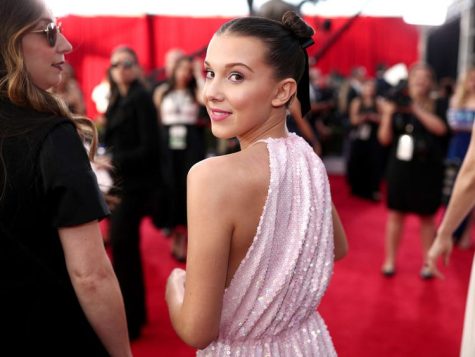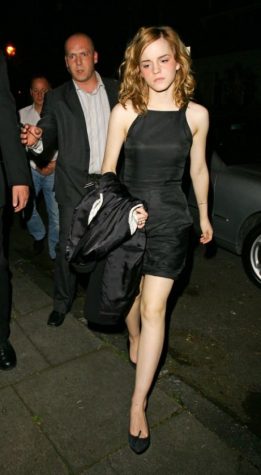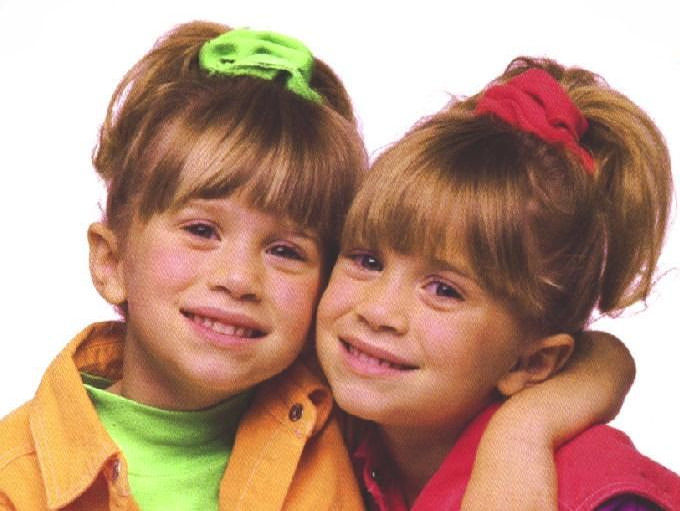The Oversexualization of Child Stars and Women Alike
March 4, 2022
This past weekend Stranger Things Star, Millie Bobby Brown, turned 18 years old. What was meant to be a fun day of celebration that commemorated Brown’s official “adulthood” was much darker behind the scenes when fans looked at her Instagram comments.

It was shocking. The replies ranged from being extremely lewd to downright explicit. Messages from some users referenced sexual acts, others used suggestive emojis to get the point across. Furthermore, there was allegedly an entire subreddit (which has been banned following mass reports) dedicated to sharing sexual photos of Brown, photoshopped or not, the very moment she turned 18 on February 19. What many may look at as just a con associated with rising stardom is much deeper, for this is not the first occurrence.
Many are familiar with Harry Potter leading actress Emma Watson known for her role as Hermione Granger, as well as her work in The Perks of Being a Wallflower, and Beauty and the Beast. However, what they don’t know is that on the day of her birthday paparazzi released crude pictures taken at her birthday party the night prior that showed up her skirt. Though incredibly revealing, they were legal to post because Watson was no longer considered a minor under the law. Natalie Portman also recalls that after her work in the notorious film, Leon the Professional, grown adult men would comment on her developing body in their reviews, often making her feel unsafe to express herself sexually for fear of objectification.

Yet, this trend has been going on even before Watson, child actress, Mara Wilson, known best for her role in Matilda. Before Wilson had even graduated high school, she explains that she had received inappropriate messages from older men, found herself photoshopped onto child pornography sites, and was featured on various private adult websites.
There is a huge issue with child exploitation in Hollywood, but also in our own spheres of life. The real question is if we continue to let people make these advanced comments on young developing adolescent celebrities, what’s to stop people from doing them to every kid out there? And more to the point what does this say about internet safety? Especially with social media platforms like Instagram that allow for such types of comments to be posted and remain up. When do we wait to step in? Millie Bobby Brown is only a few months older than me, and only a year or so older than most underclassmen, and when you take out the fact that she is a celebrity, it’s easy to understand the severity of this often discussed topic.
I sometimes feel that another huge issue with this whole convoluted conflict is victim-blaming. Placing the blame on the victim stigmatizes the whole issue and makes people afraid to come forward. Celebs like the famous Mary-Kate and Ashley Olsen are prime examples of this backward concept. The Olsen twins were beloved by all of America for their iconic shared role of Michelle Tanner on Full House. However, in the latter half of their life, after they ended their professional acting careers, they’ve become known as more “peculiar” and “failed stars” by the public. Yet again, what many don’t know is the types of intimidation the twins faced from fans and paparazzi. There were actually multiple websites dedicated to countdowns that marked the very second the Olsens would turn 18 so that it would be legal in the eyes of the law to post explicit images and sexually intimidating comments.
Looking at things from a larger perspective, I feel that this is one issue that needs to be more discussed among the male community. No, this is not to say that male celebrities are sexualized, because they are, just at a significantly smaller rate. Nor is this to say that every man has or will objectify a woman. However, if looking at the statistics and most famous examples, it’s plain to see what group is being most affected by this issue, and the group that is most commonly the perpetrator. The overarching point is that if you see something, say something. Men sometimes tend to not discuss this problem because its effect isn’t always apparent to them- but at some point, we must realize that in any case, being an innocent bystander is not enough, you must always be actively advocating for women in these situations.
***This opinion article reflects the voice of the writer and does not necessarily represent the views of The Viking Times as a whole. Like most news outlets, The Viking Times is a non-partisan media platform.***



